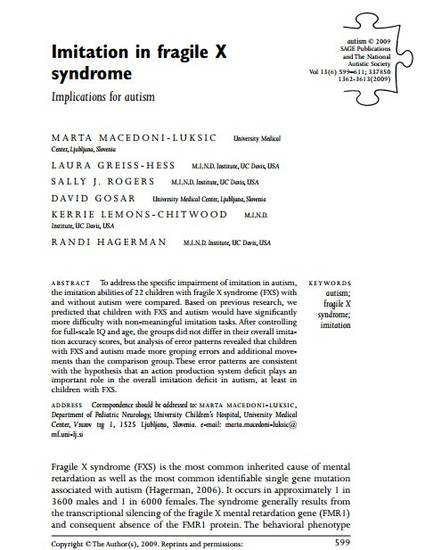
Article
Imitation in Fragile X Syndrome: Implications for Autism
Autism
(2009)
Abstract
To address the specific impairment of imitation in autism, the imitation abilities of 22 children with fragile X syndrome (FXS) with and without autism were compared. Based on previous research, we predicted that children with FXS and autism would have significantly more difficulty with non-meaningful imitation tasks. After controlling for full-scale IQ and age, the groups did not differ in their overall imitation accuracy scores, but analysis of error patterns revealed that children with FXS and autism made more groping errors and additional movements than the comparison group. These error patterns are consistent with the hypothesis that an action production system deficit plays an important role in the overall imitation deficit in autism, at least in children with FXS.
Keywords
- Fragile X Syndrome,
- Fragile X,
- FXS
Disciplines
Publication Date
November, 2009
Citation Information
Marta Macedoni-Luksic, Laura Greiss Hess, Sally J. Rogers, David Gosar, et al.. "Imitation in Fragile X Syndrome: Implications for Autism" Autism Vol. 13 Iss. 6 (2009) p. 599 - 611 ISSN: 1362-3613 Available at: http://works.bepress.com/laura_greisshess/3/
